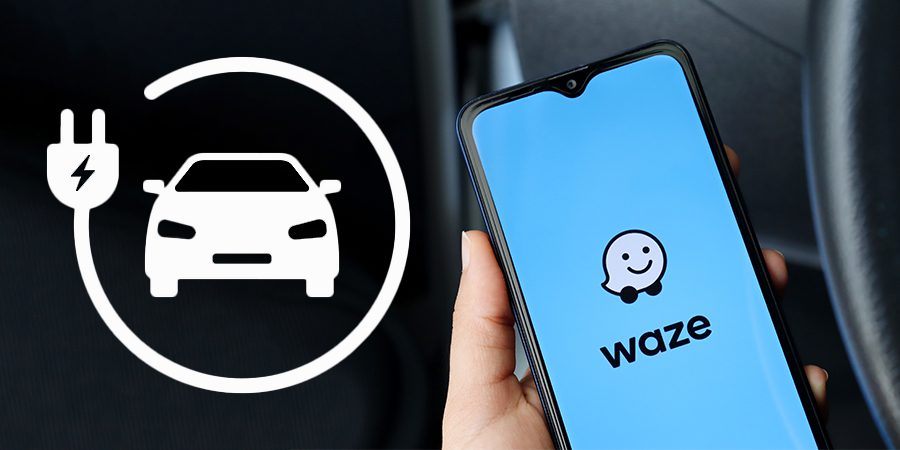Subscribe
"Unlock exclusive insights and elevate your financial wisdom with NetWorth.com — subscribe now to stay ahead in the wealth game!"

In this article, we’ll look at the reasons behind the introduction of electric vehicle charging stations to Waze’s route planning tool and how the Google-owned navigation app aims to enhance the driving experience for EV owners.
With a unique crowdsourced map editing feature, Waze plans to provide the most accurate EV charging locator in the market.
Key Takeaways:
For those who favor Waze over other navigation tools, the announcement of the addition of EV charging stations to the app’s route planning tools is a significant development.
This new feature is designed to cater to the growing population of electric vehicle owners, making their lives easier when searching for charging points.
From today, Waze users can enter their vehicle information and preferred plug type into the app, and Waze will locate the nearest charging stations along their route.
The company plans to roll out the feature globally in the coming weeks.
However, its functionality at launch remains a topic of discussion, as some users have reported being directed to gas stations instead of EV chargers.
In 2021, Waze briefly experimented with adding EV chargers to its route planning tool in collaboration with Volkswagen.
The trial, which lasted only a few weeks, ended with the removal of charging stations from the app.
However, with today’s announcement, a company spokesperson confirmed that EV charging has been added “permanently” to the app.
Waze believes that its crowdsourced map editing function will enable the app to provide the most accurate, comprehensive information on EV charging stations.
In a blog post, the company addressed the common problem of inconsistent, outdated, or unreliable charging station information, which often causes frustration for EV drivers.
By incorporating up-to-date EV charging data into the Waze map, the company aims to streamline the process of finding and using charging stations.
Waze isn’t the only navigation app striving to enhance the EV charging experience.
Google, Waze’s parent company, has been refining Google Maps to include information about plug types and their availability at charging stations.
Furthermore, Google recently improved EV charging searches for electric vehicles equipped with Google-built software.
A variety of EV charging navigation tools exists, including A Better Route Planner, PlugShare, and Chargeway.
Each has its advantages and disadvantages, but Waze’s new updates may position the app as a top choice for EV owners.
With the integration of electric vehicle-specific navigation, Waze is giving EV drivers another option for planning their routes with charging stations in mind. Starting today, the app will include EV charger location information, making it easier for drivers to plan their journeys.
The new feature allows users to specify their EV type and relevant charging plug, filtering only suitable charging stations.
Waze’s community will review and update the map data in real-time to maintain accuracy and comprehensiveness.
The addition of EV charger location data to Waze expands the range of route-planning tools available to EV drivers.
Popular apps like PlugShare and A Better Route Planner, as well as Apple Maps and Google Maps, already offer EV-routing features to help drivers find charging stations.
However, the unique aspect of Waze’s approach lies in its real-time, crowdsourced map data, which aims to provide a more accurate and comprehensive representation of charging station information.
Many electric vehicles come with onboard navigation systems that display charger locations as a standard feature.
In some cases, using the vehicle’s built-in navigation system may be more advantageous than casting from a smartphone.
For instance, several EVs precondition the battery for faster charging if the native navigation app has a charger set as the destination.
Waze has initiated the rollout of its EV data integration, with plans to extend the feature to users around the world over the coming weeks.
This development underscores the company’s commitment to supporting the growing community of electric vehicle drivers and addressing their unique needs.
The addition of electric vehicle charging stations to Waze’s route planning tool marks a significant milestone in the evolution of navigation apps.
By leveraging crowdsourced map editing and real-time data updates, Waze aims to provide a superior experience for electric vehicle owners.
As more and more drivers switch to electric vehicles, the demand for accurate and reliable EV charging station information will only continue to grow.
With its latest updates, Waze is well-positioned to become a preferred service among EV drivers, ultimately making their lives easier and more convenient.